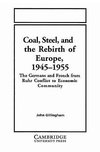
-
 Anglický jazyk
Anglický jazyk
16th century in Switzerland
Autor: Source: Wikipedia
Source: Wikipedia. Pages: 51. Chapters: 16th-century Swiss people, Huldrych Zwingli, Theodore Beza, Johann Stumpf, Heinrich Bullinger, Josias Simmler, Oswald Myconius, Reformation in Switzerland, Conrad Grebel, Johannes Oecolampadius, Thomas Erastus, Felix... Viac o knihe
Na objednávku, dodanie 2-4 týždne
17.19 €
bežná cena: 19.10 €
O knihe
Source: Wikipedia. Pages: 51. Chapters: 16th-century Swiss people, Huldrych Zwingli, Theodore Beza, Johann Stumpf, Heinrich Bullinger, Josias Simmler, Oswald Myconius, Reformation in Switzerland, Conrad Grebel, Johannes Oecolampadius, Thomas Erastus, Felix Manz, Conrad Pellicanus, Second War of Kappel, Conrad Dasypodius, Johannes Oporinus, Ami Perrin, Ambrosius Blarer, William Farel, George Blaurock, Simon Sulzer, Jost Amman, Pierre Viret, Philibert Berthelier, Berchtold Haller, Rudolf Gwalther, Johannes Wolf, Niklaus Manuel, Johann Froben, Johann Jakob Grynaeus, Ludwig Lavater, Theodore Bibliander, Thomas Platter, Christoph Froschauer, Laurenz Forer, Thomas Grynaeus, François Bonivard, Klaus Hottinger, Diebold Schilling the Younger, Wolfgang Musculus, Jakob Ceporin, Ludwig Pfyffer, Johann Augustanus Faber, Henricus Petrus, Tobias Stimmer, Leo Jud, Rappenkrieg. Excerpt: Huldrych (or Ulrich) Zwingli (1 January 1484 - 11 October 1531) was a leader of the Reformation in Switzerland. Born during a time of emerging Swiss patriotism and increasing criticism of the Swiss mercenary system, he attended the University of Vienna and the University of Basel, a scholarly centre of humanism. He continued his studies while he served as a pastor in Glarus and later in Einsiedeln where he was influenced by the writings of Erasmus. In 1518, Zwingli became the pastor of the Grossmünster in Zurich where he began to preach ideas on reforming the Catholic Church. In his first public controversy in 1522, he attacked the custom of fasting during Lent. In his publications, he noted corruption in the ecclesiastical hierarchy, promoted clerical marriage, and attacked the use of images in places of worship. In 1525, Zwingli introduced a new communion liturgy to replace the mass. Zwingli also clashed with the Anabaptists, which resulted in their persecution. The Reformation spread to other parts of the Swiss Confederation, but several cantons resisted, preferring to remain Catholic. Zwingli formed an alliance of Reformed cantons which divided the Confederation along religious lines. In 1529, a war between the two sides was averted at the last moment. Meanwhile, Zwingli's ideas came to the attention of Martin Luther and other reformers. They met at the Marburg Colloquy and although they agreed on many points of doctrine, they could not reach an accord on the doctrine of the presence of Christ in the eucharist. In 1531 Zwingli's alliance applied an unsuccessful food blockade on the Catholic cantons. The cantons responded with an attack at a moment when Zurich was badly prepared. Zwingli was killed in battle at the age of 47. His legacy lives on in the confessions, liturgy, and church orders of the Reformed churches of today. Map of the Swiss Confederation in 1515.The Swiss Confederation in Huldrych Zwingli's time consisted of thirteen states (cantons) as well as
- Vydavateľstvo: Books LLC, Reference Series
- Rok vydania: 2020
- Formát: Paperback
- Rozmer: 246 x 189 mm
- Jazyk: Anglický jazyk
- ISBN: 9781232459880





 Ruský jazyk
Ruský jazyk 






